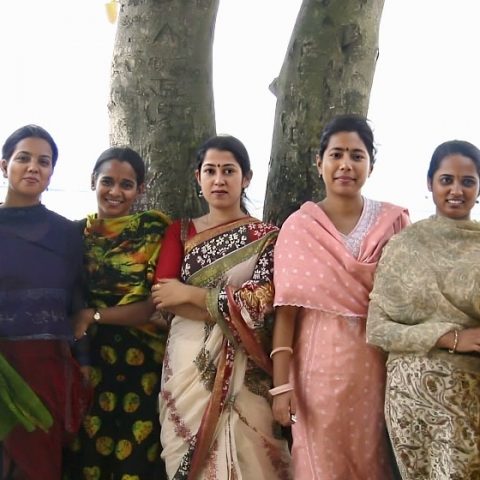Diseases like cholera and smallpox have become widely known cultural symbols for human suffering and medical progress. The same can hardly be said for rotavirus – outside of doctors and diarrhoeal disease specialists, the word ‘rotavirus’ has failed to find a foothold in everyday speech. Despite this, rotavirus is currently the most common cause of childhood diarrhoea in the world. It is so ubiquitous that nearly every human child in the world will be infected once by the age of five.
Unlike cholera, improved sanitation and living standards have not eliminated rotavirus from advanced economies. Improved access to care for children in industrialized nations has meant that rotavirus deaths are rare in those settings. In spite of this progress, the global burden of rotavirus mortality is staggering – in 2013 it caused over 200,000 preventable child deaths, almost exclusively in resource-poor settings.
It is only recently that we have come to appreciate the scale of death caused by rotavirus. Without the knowledge gained from demographic surveillance in poor countries it is entirely plausible that rotavirus infections would have remained an obscure and minor problem in paediatric care.
Diagnosing the problem: rotavirus surveillance in the global South
icddr,b—an international health research institute based in Bangladesh—is a centre for public health and biomedical research. icddr,b strives to bring the insights of modern science to the health concerns of resource-poor communities in the global South.
icddr,b has been carrying out detailed medical and demographic surveillance of extremely poor communities in Bangladesh since the 1960s. Dr K. Zaman, a senior scientist and epidemiologist at icddr,b, has conducted research to determine the prevalence of rotavirus as a cause of childhood diarrhoea in Bangladesh.
Dr Zaman’s team, in collaboration with Dr David Sack from the Johns Hopkins Bloomberg School of Public Health, studied all children under five who were admitted for care in two icddr,b surveillance clinics, from 2000 to 2006. They tested for the presence of rotavirus in children presenting with severe diarrhoea and found that 33% of these children tested positive for rotavirus – conclusively demonstrating that it should a serious target for policy in Bangladesh.
These findings – combined with the results of rotavirus surveillance in poor communities across the globe – have contributed to an evolving picture of rotavirus as a primary target for global public health and humanitarian aid.
Delivering the cure: rotavirus vaccine trials in Bangladesh
Oral rotavirus vaccines were first introduced into industrialized nations in 2006. Hospitalizations for severe rotavirus infections were rapidly reduced in these countries, falling by as much as 80% in the United States. The WHO now lists rotavirus vaccines on its List of Essential Medicines. Gavi, the Vaccine Alliance supports the introduction of rotavirus vaccines to the global South as one of its cornerstone objectives.
Successful introduction of new vaccinations necessitates conducting region-specific safety and efficacy trials. This is of particular concern for oral vaccines – for reasons still poorly understood, some oral vaccines shown to be effective in industrialized settings show reduced efficacy when introduced to resource-poor communities.
Dr Zaman’s team – with funding from Gavi and Merck – has recently conducted a clinical trial to determine the safety and efficacy of oral rotavirus vaccination in Bangladesh. The vaccines were shown to be both safe and effective in this context – but the measured efficacy was substantially lower than that previously seen in more industrialized nations. Whereas rotavirus vaccines have an efficacy of over 80% in advanced economies, this drops to less than 50% in resource-poor communities in Bangladesh and Vietnam.
The implications of these findings are twofold:
- The vaccines are currently effective enough to justify WHO proposals for expanded rotavirus immunization
- There is a loss of efficacy in resource-poor settings and further work must be done to maximize the returns from immunization programmes
The work done by icddr,b and other research institutes in the global South has pushed rotavirus out of obscurity and into the forefront of the global development agenda. Hopefully, these efforts will one day elevate this modest virus to the ranks of polio and cholera – a potent symbol of humankind’s capacity to overcome suffering.
Zain Ali (a freelance science writer based in Bangladesh)

